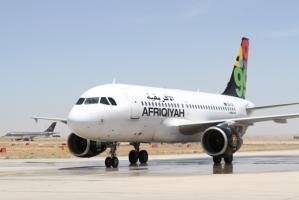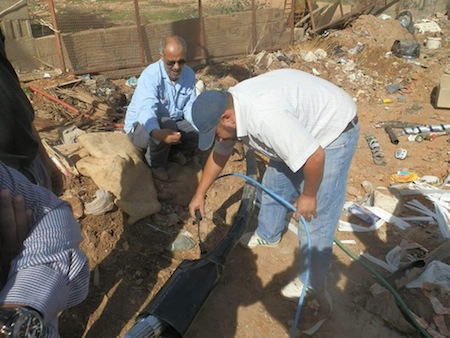By Hadi Fornaji.

Tripoli, 11 December 2014:
The European Union has imposed an immediate blanket ban on all Libyan aircraft movements in EU . . .[restrict]airspace, on “safety grounds”. Since March 2012, the Libyan Civil Aviation Authority has itself been imposing a voluntary block on all Libyan carriers.
Violeta Bulc, EU commissioner for transport said today: “Recent events in Libya have led to a situation whereby the civil aviation authority is no longer able to fulfil its international obligations with regard to the safety of the Libyan aviation sector.”
At the core of the original problem was the parlous state of the record-keeping for flight deck and engineering personnel as well as aircraft themselves, even though both Afriqiyah Airways and Libyan Airlines had embarked upon major fleet upgrades.
The EU Air Safety Committee did not impose a ban. Rather it agreed to the Libyan Civil Aviation Authority voluntarily halting EU-bound flights of Libyan registered aircraft. It was expected that the suspension would give the LCAA time to get its documentary and regulatory house in order. In the event, the LCAA has struggled to make progress on the task. Despite optimistic statements, it seemed that it was still a long way off convincing the Europeans that it was a reliable regulator.
Yet an aviation source told the Libya Herald this evening that the EU ban was now about security rather than safety due to poor regulatory oversight. “This is not technical move. It is political. It came from the EU transport commissioner, not some bureaucrat.” Brussels had been spooked by the presence of ISIS camps in Libya and the UN Security Council’s sanctioning of Ansar Al-Sharia as an Al-Qaeda affiliate. “What is worrying some people is the allegation that airliners were grabbed by terrorists and could be used as flying bombs”.
The source went on to say that he did not believe that any flyable aircraft were unaccounted for. He did however suspect that the EU-airspace ban on Libyan carriers could well be expanded to any flight originating from a Libyan airport. This, he said, would play to the particular strength of Turkish Airlines and Tunis Air, which would see Istanbul and Tunis become crucial hubs for any onward travel to EU airspace.
The EU bans specifically mentions Afriqiyah Airways, Libyan Airlines, Buraq Air, Ghadames Air Transport, Air Libya, Global Aviation and Services and Petro Air. But the wording makes clear that any Libyan registered aircraft is covered.
Soon after its planes were banned from European skies, Afriqiyah Airways pioneered a work-around by wet-leasing aircraft and crews from carriers in a range of countries including Moldova, Spain and Tunisia. This highly expensive option was replaced when the airline began the re-registration in Ireland of three of its new Airbuses. Owned and operated by an Irish company, the planes were still branded Afriqiyah and began services between Tripoli and London Gatwick, Paris Dusseldorf and Rome. An earnest of the optimism the airline felt was that just weeks before Tripoli international Airport was destroyed, Afriqiyah opened its own dedicated check-in area in the terminal building.
This newspaper understands however that this Monday, Afriqiyah management called in the staff at all its European stations and warned them that there would be extensive redundancies, because the stations were all likely to close. The meetings led to despairing Tweets from airline staff.
[/restrict]







